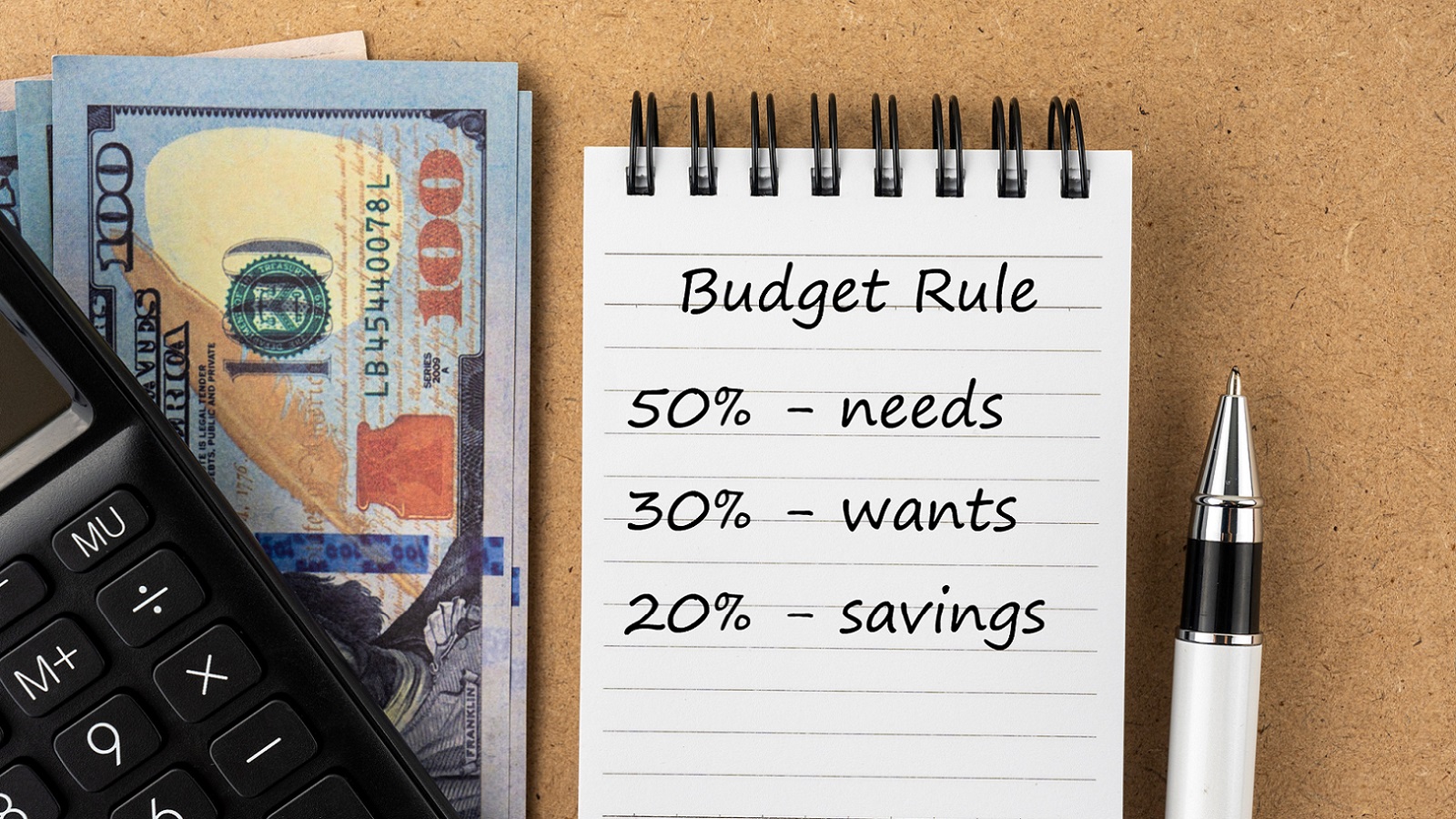The Power of Living Within Your Means
Budgeting is work, but it allows you to spend your money on what you value most.

Profit and prosper with the best of Kiplinger's advice on investing, taxes, retirement, personal finance and much more. Delivered daily. Enter your email in the box and click Sign Me Up.
You are now subscribed
Your newsletter sign-up was successful
Want to add more newsletters?

Delivered daily
Kiplinger Today
Profit and prosper with the best of Kiplinger's advice on investing, taxes, retirement, personal finance and much more delivered daily. Smart money moves start here.

Sent five days a week
Kiplinger A Step Ahead
Get practical help to make better financial decisions in your everyday life, from spending to savings on top deals.

Delivered daily
Kiplinger Closing Bell
Get today's biggest financial and investing headlines delivered to your inbox every day the U.S. stock market is open.

Sent twice a week
Kiplinger Adviser Intel
Financial pros across the country share best practices and fresh tactics to preserve and grow your wealth.

Delivered weekly
Kiplinger Tax Tips
Trim your federal and state tax bills with practical tax-planning and tax-cutting strategies.

Sent twice a week
Kiplinger Retirement Tips
Your twice-a-week guide to planning and enjoying a financially secure and richly rewarding retirement

Sent bimonthly.
Kiplinger Adviser Angle
Insights for advisers, wealth managers and other financial professionals.

Sent twice a week
Kiplinger Investing Weekly
Your twice-a-week roundup of promising stocks, funds, companies and industries you should consider, ones you should avoid, and why.

Sent weekly for six weeks
Kiplinger Invest for Retirement
Your step-by-step six-part series on how to invest for retirement, from devising a successful strategy to exactly which investments to choose.
Creating a budget is crucial at any age, but it's especially important—and daunting—for us millennials. When rent, health care, cell phone bills and other costs previously borne by Mom and Dad gobble up our paychecks, figuring out how to handle the rest of our cash is hard. And for me, at least, travel, socializing with friends and spending on everyday needs can be tough to balance against saving for a far-off future.
But now is the best time to learn how to budget. "We're at this critical point where if we don't understand where our money goes, we will feel less and less in control of our finances as the years go on," says Pam Capalad, a certified financial planner (and millennial) who owns Brunch & Budget, in New York City.
Learning to live within your means will help you prepare for the inevitable stressors later on, such as buying a home, starting a family or taking time off between jobs.
From just $107.88 $24.99 for Kiplinger Personal Finance
Become a smarter, better informed investor. Subscribe from just $107.88 $24.99, plus get up to 4 Special Issues

Sign up for Kiplinger’s Free Newsletters
Profit and prosper with the best of expert advice on investing, taxes, retirement, personal finance and more - straight to your e-mail.
Profit and prosper with the best of expert advice - straight to your e-mail.
Budgeting well can take some trial and error. When I moved to Washington, D.C., in 2012, I dutifully recorded every dollar I spent on a spreadsheet. But I eventually got lazy and stopped adding up my expenses each month. When I revisited my budget last year to see if I could afford to leave roommate life behind and live alone, I was shocked.
My fixed expenses had mostly stayed the same, but my discretionary spending had ballooned as I grew lax about throwing money at nights out with friends. At the same time, I was accumulating too much cash in my checking account that could have been put to better use in a savings account or in my 401(k).
Strategies that stick. Start budgeting by tracking your expenses for two to three months — without judgment —says Ryan Frailich, founder of Deliberate Finances, in New Orleans. Once you're aware of where your money goes, you can set realistic, concrete goals ("save $700 in my vacation fund by August") rather than vague ones ("go out less"). This will motivate you to revisit your budget regularly.
Start gradually rather than trying to overhaul your money habits all at once. Capalad recommends that her clients choose one category at a time and spend a couple of months paring down their spending in that area.
At the same time, think about what you value most — living alone, getting in shape with a personal trainer, going to concerts or the theater — and prioritize those in your budget.
If you're thinking of going digital, budgeting apps can help you stay on top of your finances by tracking expenses, setting savings goals and managing cash flow. These tools can simplify money management and keep your budget on track.
For example, the popular budgeting app You Need a Budget encourages users to assign each dollar earned a "job" to allocate all income to expenses or savings. The service costs $109 a year, but some users think the results, breaking the paycheck-to-paycheck cycle, outweigh the fee.
Quicken's Simplifi offers easy-to-navigate menus and charts, creating a personalized spending plan to monitor income and expenses. The app adjusts your spending plan as expenses change and helps project cash flow based on upcoming bills.
If you work with a financial adviser and want real-time insights into your finances, Monarch allows secure collaboration by sharing account information for joint management of savings and investment goals. The app also supports multiple users, enabling partners or household members to access their own accounts. Monarch offers a seven-day free trial, followed by a subscription of $14.99 per month or $69.99 per year.
Setting up these tools can be tedious, but they will help you visualize your net worth, spending patterns or goals.
Quicken LifeHub $1.99 p/m (when billed annually).
Protect your important information from floods, fires and other disasters. Stored in the cloud. Easily share documents and transfer ownership to loved ones when needed.
Try redirecting a bigger chunk of your income into a savings account when you get your paycheck (and before you have a chance to spend it). See how crunched you feel the first month before upping that amount. Similarly, if you currently contribute 3% of your paycheck to your 401(k), inch up slowly toward the ideal 15%.
Owning up to what you spend (or overspend) is scary. "Freaking out is part of the process," says Capalad. I felt disheartened when I realized that something had to give. But the important thing is spending my money on what I value most, and that's my choice. The rest is negotiable.
related content
Profit and prosper with the best of Kiplinger's advice on investing, taxes, retirement, personal finance and much more. Delivered daily. Enter your email in the box and click Sign Me Up.

-
 The New Reality for Entertainment
The New Reality for EntertainmentThe Kiplinger Letter The entertainment industry is shifting as movie and TV companies face fierce competition, fight for attention and cope with artificial intelligence.
-
 Stocks Sink With Alphabet, Bitcoin: Stock Market Today
Stocks Sink With Alphabet, Bitcoin: Stock Market TodayA dismal round of jobs data did little to lift sentiment on Thursday.
-
 Betting on Super Bowl 2026? New IRS Tax Changes Could Cost You
Betting on Super Bowl 2026? New IRS Tax Changes Could Cost YouTaxable Income When Super Bowl LX hype fades, some fans may be surprised to learn that sports betting tax rules have shifted.
-
 I Need to Cut $1,000 From My Monthly Budget, and I've Already Given Up Starbucks and Dining Out. What Else Can I Do?
I Need to Cut $1,000 From My Monthly Budget, and I've Already Given Up Starbucks and Dining Out. What Else Can I Do?Here are some creative ways to save up to $1,000 a month, even if you feel like you've already made all of the obvious cuts.
-
 I'm a Government Employee and Need to Get By Until the Shutdown Ends. What Can I Do?
I'm a Government Employee and Need to Get By Until the Shutdown Ends. What Can I Do?The second-longest shutdown in history is leaving many federal workers with bills due and no paycheck to cover them. Here's what you can do to get by.
-
 What Does Medicare Not Cover? Eight Things You Should Know
What Does Medicare Not Cover? Eight Things You Should KnowMedicare Part A and Part B leave gaps in your healthcare coverage. But Medicare Advantage has problems, too.
-
 When Renting Is Smarter Than Buying
When Renting Is Smarter Than Buyingreal estate There are some situations when renting is smarter than buying. You're not necessarily throwing your money away when you rent.
-
 The 50-30-20 Budget Rule: A Simple Way to Save Money
The 50-30-20 Budget Rule: A Simple Way to Save MoneySaving Using the 50-30-20 budget rule is an easy way to save. It helps you prioritize saving while paying off debt.
-
 'Food Tax': Which States Still Tax Groceries?
'Food Tax': Which States Still Tax Groceries?State Tax Ten states still tax groceries, but that figure is shrinking.
-
 How Do You Pay off Credit Card Debt?
How Do You Pay off Credit Card Debt?Making Your Money Last Pay off credit card debt with these tried-and-true strategies.
-
 Bear Market Strategy for Millennial Investors
Bear Market Strategy for Millennial InvestorsA focused, goal-oriented approach to investing can help millennials navigate a bear market.
